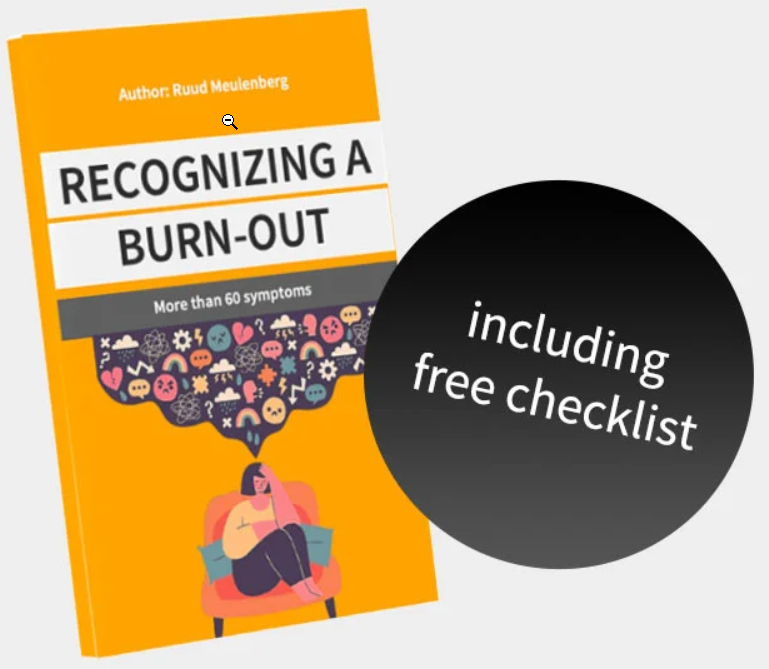What do you go for when you feel anxious or stressed? Many people turn to unhealthy foods and drinks for solace when stressed. Most of the time, the very items that most people prefer to eat, such as chips, cookies, and alcohol, only offer short-term relief and may aggravate stress and depression in the long term.
The diet you consume has a direct impact on the processes in your body and can either stress you out or assist you in managing stress. This article will determine whether nutrition can boost stress levels or not.
What is the Purpose of Food?
Food is vital for sustaining life, and it’s crucial to ensure that your meals are free from harmful substances and rich in essential nutrients. The primary purposes of food are:
Absorption of Essential Nutrients
Nutrients fuel our bodies, enabling the development and maintenance of optimal levels of physical activity and health. However, our bodies cannot produce all the necessary nutrients independently. For instance, Vitamin C [1] is exclusively found in sources like citrus fruits and amla. Therefore, it is imperative to consume diets rich in essential nutrients and bioactive compounds that contribute to overall health and wellness. This dietary aspect plays a significant role in effectively managing stress.
Choose the help that suits you.
Our dedicated team of experts is here to guide and support you in the most difficult times of your life.
Fulfills Psychological Needs
Food serves as a source of flavor and can impact reasoning and behavior. It can act as a reward in positive situations and provide comfort in adverse conditions. Nutrition, in these instances, becomes a tool to help us cope with stress and challenging emotions.
Physical Modifications
Consuming healthy foods fuels our bodies to support maintenance and healing processes. A nutritious diet not only keeps us healthy but also enhances our appearance, potentially extending our lives. Nutrition can contribute to making certain parts of our bodies stronger and more appealing. In this way, nutrition becomes a source of self-love, confidence, and comfort.
The Importance of Healthy Foods
The benefits of maintaining a balanced and nutritious diet encompass the following:
- Enhances your body’s natural defenses and immunity.
- Decreases the likelihood of developing chronic diseases.
- Slows down the aging process.
- Lowers the risk of cardiac problems.
- Promotes and maintains a healthy weight.
- Alleviates symptoms of stress and tiredness, preventing them from becoming chronic.
How Does Food Impact the Body and Mind
Nutrition and emotions are connected through the close relationship between your brain and your stomach, often called the “second brain.”
Here’s how it works: Your GI tract has billions of bacteria that play an active role in making chemicals. These chemicals constantly communicate between your digestive system and brain, including hormones like dopamine and serotonin.

Eating nutrient-rich food increases the number of “good” bacteria, which helps your body produce these chemicals. When everything works well, your brain gets these positive messages, and your mood can show it. But if something goes wrong, your mood might not be as good.
Choosing healthier foods may lead to more stable moods and better mental focus. Some studies even suggest that having a clean diet with whole, unprocessed foods can help ease feelings of stress and anxiety.
On the flip side, a poor diet can lead to diseases and harm your mental health, energy levels, skin, and overall well-being. Bad eating habits might shorten your attention span, reduce energy, and lower productivity. They could also contribute to stress, anxiety issues, high cholesterol, and type 2 diabetes.
Remember, what you eat can impact your health and happiness, affecting your ability to enjoy life’s pleasures.
How Does Food Contribute to Stress Levels?
Eating meals with low nutritional value, like processed meats, sugary foods, caffeine, and alcohol, has been linked to an increase in mental symptoms and higher levels of the stress hormone cortisol.
Research shows that elevated cortisol levels are associated with a higher risk of developing metabolic syndrome, heart disease, type 2 diabetes, burnout, and other mental health issues.
On the flip side, certain nutrients in your diet can help reduce stress and anxiety. Including fruits, vegetables, lean proteins, whole grains, and healthy fats can contribute to lowering stress, improving mood, and boosting self-esteem. These foods provide essential nutrients that your body and brain need to work at their best.
A diet rich in whole foods and low in processed ones can help maintain cortisol levels where they should be.
Long-term Impacts of a Poor Diet
The following are the harmful effects of consuming unhealthy food:
Obesity and Excess Weight
Children can avoid becoming overweight and unhealthy if they eat well, receive plenty of exercise, and get a good night’s sleep. In the US for example, it is estimated that 20% of children and adolescents between the ages of 2 and 19 are obese, and 42% of adults are overweight.
Stroke and Heart Disease
High blood pressure and high cholesterol are two major risk factors for cardiovascular disease and stroke. High sodium intake has been linked to hypertension and increased cardiovascular disease, and stroke risk. In the US, adults consume more than 3,400 mg daily despite recommendations to limit intake to less than 2,300 mg.
Type 2 Diabetes
Over time, the bodies of people who are overweight or obese become less able to use the insulin they produce, putting them at a higher risk of developing type 2 diabetes than those who maintain a healthy weight.
While the annual pace of new cases has slowed, the total number of adults in the US diagnosed with diabetes has nearly doubled in the last two decades due to the rise in the average age and prevalence of obesity.
Tips for Healthier Eating
Here are some simple tips to make your eating habits healthier:
- Balance Your Diet: Make sure your meals give your body the energy it needs. A balanced diet, adjusted to your lifestyle, with smaller and nutritious meals throughout the day, helps keep your blood sugar levels steady.
- Eat Fiber: Fiber is good for your body’s waste systems and can make your mind clearer while lowering stress. Foods like oats, nuts, beans, fruits, and veggies are rich in fiber. Just be mindful of fats from things like oil, butter, and creamy sauces.
- Enjoy Fruits and Vegetables: Fruits and vegetables have essential nutrients that are good for you. Leafy greens, especially, can help neutralize harmful chemicals produced in your body when you’re stressed.

Download our
free e-book
Recognizing a burnout
(more than 60 symptoms)
- Cut Down on Fats: Follow the advice to limit fats in your diet. Choose healthier fats like those in olive oil, avocados, and salmon, which can help reduce stress.
- Less Salt and Sugars: Don’t have too much salt, as it can cause problems with your blood pressure. Also, try to limit added sugars in your diet. Pick natural, less processed options for a healthier lifestyle.
- Drink Water: Stay hydrated by drinking enough water every day. A simple rule is to drink half your weight in ounces. Water is good for your health, skin, and helps maintain your weight because our bodies are mostly water.
Where Can I Get Support for Eating Better?
If you need help improving your diet, consider reaching out to dietitians. These professionals are trained to assess your situation, provide accurate advice, and guide you towards effective nutritional choices to meet your health goals.
You can also explore weight-loss programs, especially if stress has led to weight gain. Local groups with people sharing similar health and diet goals can offer motivation and support.
Additionally, talking to a stress coach can help uncover the reasons behind stress-induced unhealthy eating habits and provide guidance toward healthier choices.
Conclusion
In summary, the link between healthy eating and stress is undeniable. What you consume directly influences your body’s processes, impacting your ability to manage stress effectively. The role of food extends beyond mere sustenance, fulfilling psychological needs, and influencing physical modifications. Maintaining a balanced and nutritious diet offers a myriad of benefits, including enhanced immunity, reduced risk of chronic diseases, slowed aging, and overall well-being.
Understanding the intricate connection between nutrition and emotions, particularly the interaction between the brain and the gastrointestinal tract, underscores the importance of food choices in regulating mood. Opting for nutrient-rich foods can contribute to stable moods and improved mental focus. Conversely, a poor diet can lead to diseases, negatively impacting mental health, energy levels, and overall wellness.
Remember, your food choices play a significant role in determining not just your physical health but also your overall happiness, influencing your ability to enjoy life’s pleasures. Adopting healthier eating habits can be a transformative step toward a more balanced and stress-resilient life.
Stress & burnout coaching; for 100% recovery!
Reducing stress and recovering from burnout is simply incredibly difficult. The coaches at Meulenberg Training & Coaching understand exactly what you are going through and know how tough it can be. They have often experienced it themselves! With their years of experience and expertise, they are ready to help you step by step toward a full recovery. The results of our one-on-one coaching and absenteeism training will benefit you for a lifetime!
FAQs
References
- Wikipedia.org – Vitamin C – Found on 13/05/2024
Link to a page on wikipedia.org






